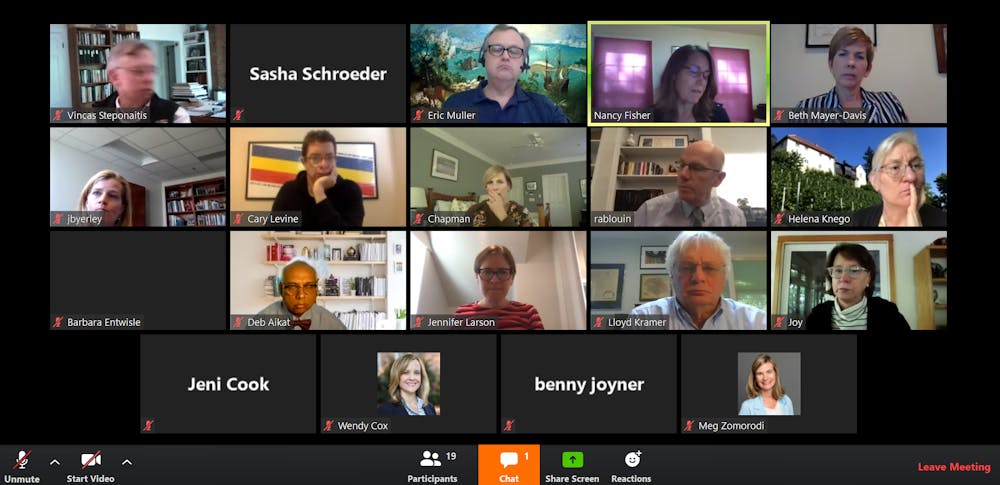Blouin acknowledged the challenges that lie ahead for the University.
“We're in a challenged position," he said. "No question. And so having multiple scenarios that will enable us to pivot on short notice is really what we're trying to think through right now."
Furlough fears
Cary Levine, associate professor in the Department of Art and Art History, asked Blouin if he was aware of any conversations about furloughs.
Blouin said furloughs are one option the University may consider if faced with a substantial financial challenge and that a voluntary furlough program has been discussed.
“The thing that furloughs can afford the University is a way of capturing a rather substantial amount of money rather quickly,” Blouin said. “It does create that immediate, rather short-term cash flow into the system.”
Difficult transitions
Blouin said there are many challenges that may arise as the University attempts to transition back into being fully operational.
“What happens if COVID-19 comes back in October?” Blouin said. “What happens if none of the international students that we've admitted into this University can come due to visa issues. Do we create a remote learning opportunity for them and then admit them in January?”
Blouin said there are groups working on analyzing the ramifications of any decisions that may be made.
Nancy Fisher, research professor in the UNC School of Medicine's Department of Microbiology and Immunology, asked how members of the campus community’s privacy will be maintained with regards to testing, tracing and reporting instances of the virus on campus.
“I think we all know some of the state and national and international challenges around testing,” Blouin said. “So despite what you might hear—where everyone can get tested when they want to get tested—that is not the case in North Carolina and certainly not in the case of Chapel Hill.”
To get the day's news and headlines in your inbox each morning, sign up for our email newsletters.
Blouin said surveillance may be considered as part of having the University community come back to campus.
“One of the questions that we're going to have to ask ourselves is are we as a campus ready to be surveilled, as a community, and if that is a critical element to coming back to campus and trying to restore normal life,” Blouin said.
Blouin also said there would be other questions to consider when it comes to tracking individuals.
“Would that be something that would be acceptable to us, as a campus community?" Blouin said. "Because we do give up some of our own civil liberties once we allow someone to put an app on our phone and track us in some way, based upon whether or not we're positive or negative to the virus."
He said even if the community returns to campus in the fall, it’s unknown what the fall and winter months will bring in terms of a resurgence of the virus.
“We’re operating under the presumption that we’re planning on doing our best to start in the fall, as usual,” Blouin said.
‘Faculty have felt shut out of decision-making’
Levine said it’s unclear how faculty are going to get answers about where the University is headed going forward.
“Unfortunately, I do think that there's some hangover from some of the demoralization of the last few years amongst faculty,” Levine said. “There's not the level of trust that may have otherwise been there, and in the recent past, faculty have felt shut out of decision-making.”
Levine said in talking to some of his colleagues over the last several weeks, he’s sensed they feel like the University is going to make decisions for them.
“Communication to faculty—what a wonderful thing, what a novel thing that our administration would choose to actually directly communicate to its faculty,” Levine said. “Not just these massive emails with generalities, but with some specifics to the faculty, speaking directly to us.”
@_sashaschroeder
university@dailytarheel.com



